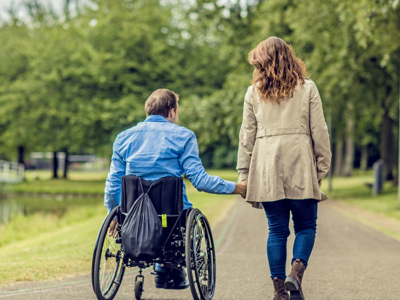
COVID-19 Public Inquiry - occupational health and safety issues
Personal injury solicitor Ross Whalley discusses the occupational health and safety issues we think should be covered by the upcoming public inquiry into the COVID crisis.
Posted on 03 June 2021
On 12 May 2021, Boris Johnson announced that an independent public inquiry will begin hearing evidence in spring 2022 into the government’s handling of COVID-19. The terms of reference have yet to be agreed, the inquiry is expected to focus on identifying lessons from the pandemic.
There are many issues for the Inquiry to consider but, from my perspective, none more so than the failure of basic protections from the virus for both public and private sector workers throughout the pandemic. Perhaps the genesis of this was a lack of clear guidance and ineffective enforcement. The HSE’s role and response in the pandemic should be afforded considerable scrutiny.
From an occupational health and safety perspective, the public inquiry should consider the issues of infection control and workplace safety, the failure to provide adequate financial support to self-isolate, personal protective equipment (PPE) availability for health and care staff and enforcement of the law on workplace safety.
On 28 April 2021, International Workers Memorial Day, unions and families remembered those who had died whilst working during the pandemic at the National COVID Memorial Wall in London. TUC general secretary Frances O’Grady said: “We’ll forever be in the debt of the workers who died during this pandemic – nurses, carers, bus drivers and so many more. They lost their lives looking after our loved ones and keeping our country running in the hardest of times. We owe it to them, and to their families, to get on with the public inquiry."
There were numerous reports of workers on the frontline of the coronavirus battle being denied safeguards such as PPE, being provided inadequate PPE and or having to re-use single use PPE. I have been contacted by a number of grieving families who have lost loved ones detailing unsafe conditions they were facing at work. This included being exposed to COVID positive patients in healthcare settings, as well as Covid-positive colleagues and members of the public in other settings, without adequate PPE, safe systems of work, risk assessments and no other physical protections. Whilst millions of people were in lockdown in the safety of their own homes, many frontline workers lacked a comparable degree of protection as a result. Likewise, the initial guidance on PPE was unclear.
It wasn’t just healthcare employers who failed to protect their employees, reports emerged about errant employers in the travel, private care, manufacturing, education and retail sectors too.
Workplace exposure to COVID-19 is reportable to the Health and Safety Executive (HSE) under the Reporting of Injuries, Diseases and Dangerous Occurrences Regulations (RIDDOR). The HSE’s duty is to investigate how employees are and were exposed to the virus. However, there has been widespread criticism of the HSE for its lack of enforcement action. It only sent out notices to employers in 0.1% of the covid related referrals made to them and made no prosecutions.
A report, HSE and COVID at work: a case of regulatory failure, put together by specialists in occupational health and safety, criticised the HSE and government for not adequately enforcing its COVID-secure guidelines, concluding that the Government’s strategy revealed an ‘underfunded, light-touch approach through an understaffed agency which failed to regulate the risk to workers’.
The role of work in transmitting the disease was recognised from the outset of the pandemic. In May 2020, the Office for National Statistics identified 17 high-risk occupations. Public Health England (PHE) figures revealed the highest-risk workplaces were offices, which accounted for more outbreaks in the second half of 2020 than supermarkets, construction sites, warehouses, restaurants and cafes altogether.
The report identified the following key factors:
- Inspectors were themselves locked down when spot checks were announced. The HSE barred Inspectors from making workplace visits because of the danger to them of making such visits.
- Austerity. Following a 58% funding cut over the last 10 years, which forced the HSE to reduce its staffing levels by 36%, there were too few inspectors to perform spot checks.
- Workplace inspections fell rather than increased during the pandemic. The number of workplace inspections completed between May and September 2020 was 40% lower than during the same period in 2019.
- No legal standing for “COVID-secure” enforcement. In contrast to the various emergency laws made in relation to social activities and other forms of pandemic control, the measures employers were asked to take were not backed by the force of law. Instead, the Department for Business, Energy and Industrial Strategy and the HSE issued guidance only.
Lord John Hendy QC, a co-author of the report, said: “Something has gone very badly wrong when enforcement action has been taken against over 40,000 members of the public and holidaymakers are threatened with ten years in jail but employers known to have put thousands of people at risk are getting off scot free. There has been health and safety legislation on the UK’s statute book for over 200 years. The current regulations are well known and could have been reasonably and effectively applied to protect workers. They were not.”
No worker should be placed at risk by their employer, have their safety compromised or fear for their life whilst doing their job. The Inquiry must now hear the stories of workers' loved ones and learn. As a state, we owe this to those workers who gave their lives, to protect our own.



